On May 14, 2021, the sixth lecture of Nitto Special Lecture of Japan Research Center of Shanghai Jiaotong University was successfully held in Conference Room 206, the fourth floor of the north of Xuhui Campus. The event was hosted by the Japan Research Center of Shanghai Jiaotong University and sponsored by Nitto Electric (China) Investment Co., Ltd. Lv Kejian, Vice President of the National Association of Japanese Economics and the Association for History of Sino Japanese Relations, and Fu Luyong, Executive Director of Japan LAOX Co., Ltd. and President of Tesco China, were invited as keynote speakers. The themes of the lecture were respectively "Sino Japanese Economic and Trade Relations and RCEP Opportunities" and "Sino Japanese Economic and Trade Changes in a Double Cycle". Chen Zilei, professor of Shanghai University of Foreign Trade and Economic Cooperation and director of Japan Economic Research Center, Zhu Baohua, professor of Antai School of Economics and Management of Shanghai Jiaotong University, served as the interlocutors, and Zheng Zhihua, associate researcher of Japan Research Center of Shanghai Jiaotong University, served as the moderator. Ji Weidong, a senior professor of liberal arts at Shanghai Jiaotong University and director of Japan Research Center, and Great Wall Shengyi, a director of Nitto Electric (China) Investment Co., Ltd., delivered speeches on behalf of the sponsor and the sponsor respectively. Cai Yuping, Deputy Director of the International Cooperation and Exchange Division of Shanghai Jiaotong University and Deputy Director of the Japan Research Center, Wei Haibo, Founder and Chairman of Asahi Education Management Group, Miyari Qihui, Founder of Hengkuan Capital, and more than 100 representative scholars, entrepreneurs and practitioners from Shanghai University in the field of economic exchanges between China and Japan attended offline or online lectures.
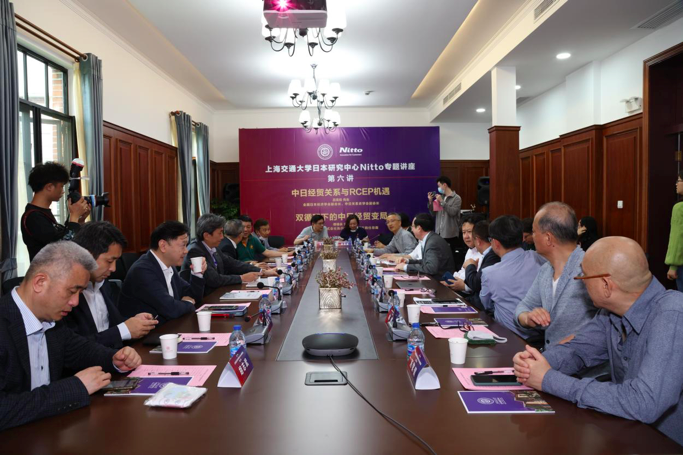
Meeting site
On behalf of the Japan Research Center, Ji Weidong first extended warm welcome and sincere thanks to the guests of this lecture. He mentioned that the impact of the epidemic and the international political environment did not block the pace of economic exchanges between China and Japan. As the normalization of China Japan diplomatic relations is about to usher in the 50th anniversary, the trend of China Japan economic cooperation needs to be seen from the perspective of the macro context of international relations, as well as some new changes that are taking place in China Japan economy. He gave a brief introduction to the theme and guests of the lecture, and believed that the lecture would be a feast of knowledge.

Senior Professor of Arts, Shanghai Jiaotong University
Ji Weidong, Director of Japan Research Center, delivered a speech
In his speech, Cheng Shengyi first expressed his expectation for this special lecture. He pointed out that during the epidemic, China's economy took the lead in recovering among the major economies in the world and maintained a strong momentum. The "Fourteenth Five Year Plan" issued in the "Two Sessions" this year represents an opportunity for foreign enterprises, including Japanese enterprises, to develop together with China's economy. At the same time, he sincerely wished the lecture a complete success.
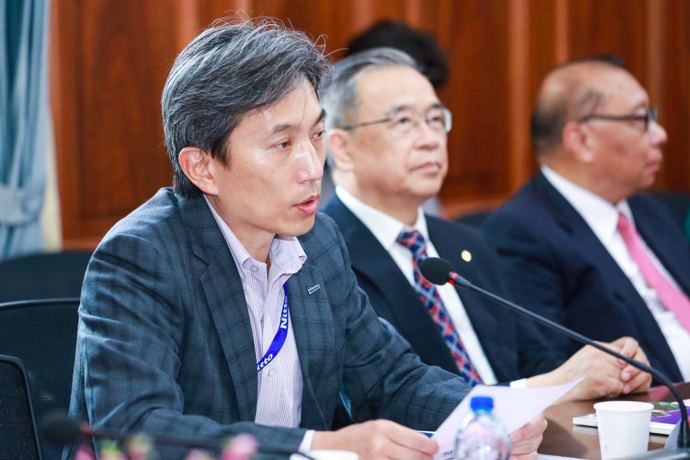
Great Wall Shengyi, Director of Nitto Electric (China) Investment Co., Ltd., delivers a speech
With the theme of "changes, challenges and opportunities in China Japan economic and trade relations", Lu Kejian analyzed the current China Japan economic and trade relations from eight aspects. He pointed out that China Japan trade is still developing steadily, Japan's investment in China remains stable, and the prospects for cooperation between skilled interns and personnel exchanges are promising. China's investment in Japan is growing steadily. China and Japan work together in the third-party market to deepen cooperation in the field of trade in services. Exchanges at all levels are increasingly frequent. China, Japan and the ROK will seize the opportunity of RCEP to promote China Japan ROK Free Trade Area consultations, We will help the East Asian region and even the whole of Asia and the world economy develop and play a positive role in promoting world peace and prosperity. At the same time, he also put forward eight prospects for China Japan cooperation, including: strengthening exchanges and cooperation in responding to public health events and disaster prevention and reduction, strengthening cooperation and exchange in scientific and technological innovation, strengthening cooperation in energy conservation, environmental protection and new energy, expanding cooperation in the field of modern services, promoting exchanges and cooperation between China and Japan, and promoting modern agriculture, rural construction and logistics cooperation, Promote two-way investment and third-party market cooperation between enterprises of the two countries, and promote regional and multilateral economic cooperation in the "post epidemic era". China and Japan will host the Tokyo Summer Olympics and the Beijing Winter Olympics this year and next, and usher in the 50th anniversary of the normalization of diplomatic relations between the two countries. He stressed that the two countries should take this opportunity to actively expand economic and people to people exchanges and cooperation, enhance people to people friendship, and further deepen China Japan relations.
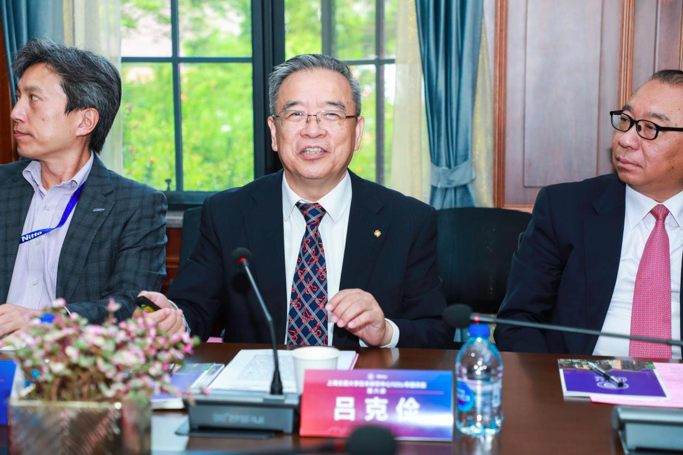
Vice President of the National Association of Japanese Economics
Lv Kejian, Vice President of China Japan Relations History Society, delivered a keynote speech
Fu Luyong gave a lively, interesting and passionate speech on the theme of "Sino Japanese economic and trade changes under the double cycle", based on his own experience in the industry and what he saw and felt. He mentioned the three scenes "people goods market" in the Sino Japanese economic and trade relations that are closely related to people's lives, and the three stages experienced in the Sino Japanese economic and trade relations from the "era of explosive buying" to the "era of e-commerce" to the "era of replenishment" and even now the "era of consumption upgrading". He believes that the current double cycle of the COVID-19 and domestic and international has brought three important opportunities for Japanese consumer goods companies. At the same time, he also expressed his firm confidence in China Japan relations.
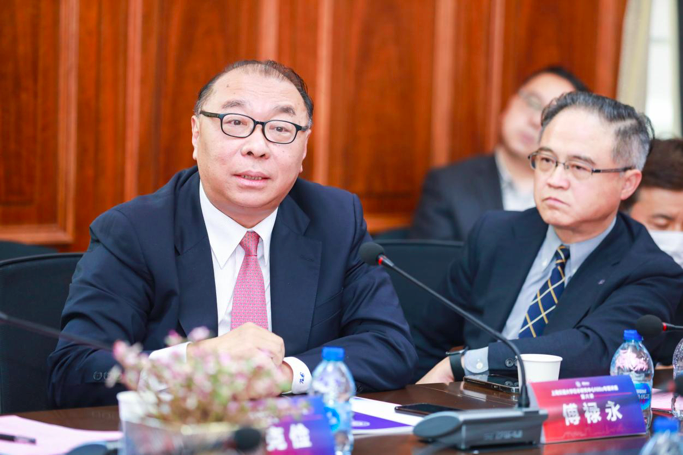
Executive Director of Japan LAOX Co., Ltd
President of Tesco China Fu Luyong delivered a keynote speech
In the review stage, Chen Zilei pointed out that the "Fourteenth Five Year Plan" and the Vision 2035 require building a new system of a higher level of open economy. In order to promote regional economic integration within the framework of RCEP, it is necessary to constantly put forward improvement plans to promote the opening of the service industry and the list of risks in implementing cross-border service trade. Deepening reform has brought huge space for cooperation between China and Japan and stimulated new development vitality. At present, we should further consider its realization path on how to continue to create globalized services, how to continue to promote regional economy, and how to drive global economic integration, such as relaxing market access system, breaking through the bottleneck of industrial cooperation, and reducing tariffs in the service sector.
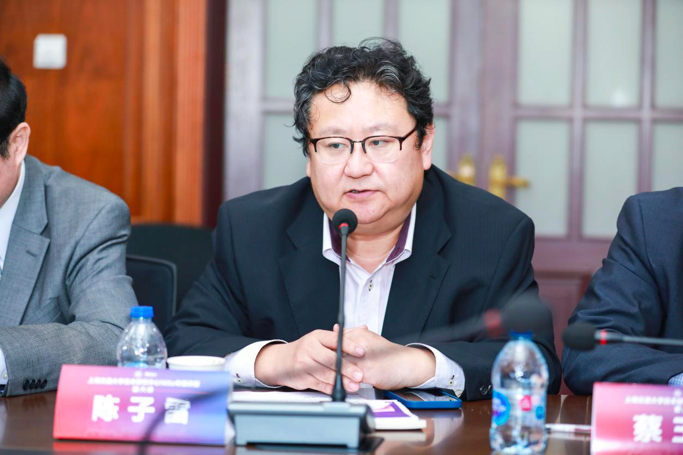
According to the latest statistics, Professor Zhu Baohua believes that there are still some challenges in China Japan relations, such as problems left over by history, communication and trust between the two peoples, which have affected the economic and cultural cooperation between the two countries. Therefore, it is hoped that China and Japan can establish a mechanism of mutual trust to promote the progress of economic and trade relations, explore better solutions, build a community of shared future, and promote China Japan economic and trade relations to a higher level.
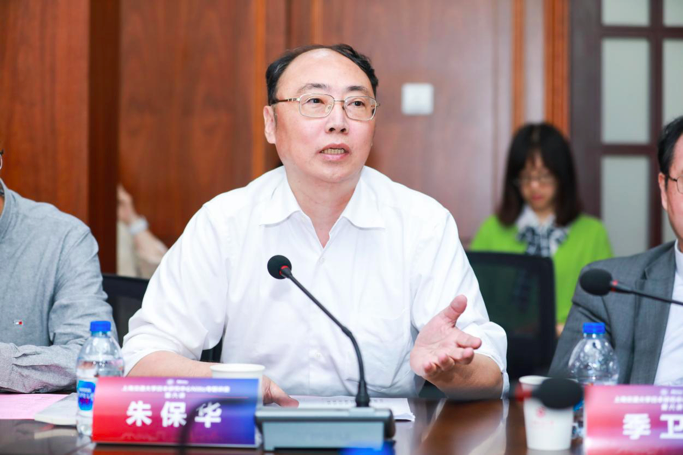
Comments by Zhu Baohua, Professor of Antai School of Economics and Management, Shanghai Jiaotong University
At the stage of concluding remarks, Ji Weidong made a summary of this special lecture. He pointed out that Mr. Lv Kejian's speech was farsighted and answered how to maintain peace and prosperity in the Asia Pacific region under the very uncertain international situation. Among them, he proposed four keys: first, cooperation in scientific and technological innovation, especially in the context of digital economy and "carbon neutral" energy; Second, local economic cooperation with high enthusiasm and great achievements; The third is the cooperation between China's new rural construction and Japan's agriculture; The fourth is third-party market cooperation. Mr. Fu Luyong put forward the proposition that the double cycle led to the revolution of Sino Japanese trade patterns, and proposed three core points for the development of Sino Japanese economic cooperation, with special emphasis on seizing historical opportunities, which is very useful for academic research and practice. In addition, it can be seen from the seminar that the business people and researchers are optimistic about the development trend, and at the same time, they are worried about "cold politics and hot economy". Ji Weidong pointed out that the responsibility of enterprise researchers is to promote risk communication, and it is necessary to prevent the risk of a vicious circle caused by excessive defense. On the other hand, achieving breakthrough through economic and trade is also the theme of this seminar.
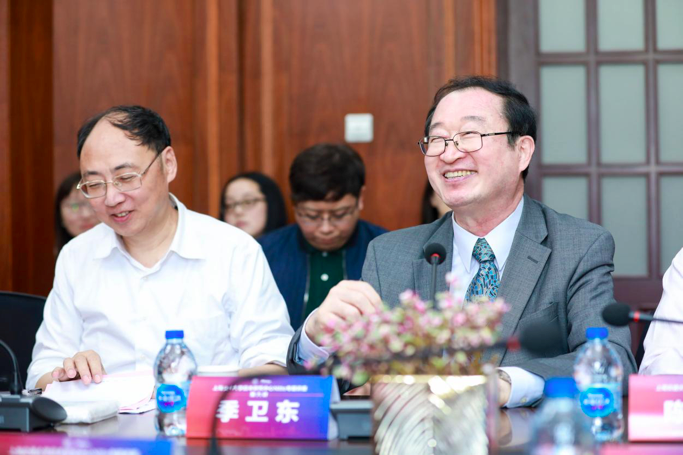
Professor Ji Weidong summarized the lecture
Finally, Director Ji Weidong and Chairman Cheng Shengyi presented a letter of thanks to the two keynote speakers for their wonderful speeches and support for the Japan Research Center of Shanghai Jiaotong University.

Director Ji Weidong presented a letter of thanks to Mr. Lv Kejian

Chairman Cheng Shengyi issued a letter of thanks to Mr. Fu Luyong

Group photo of giving thanks
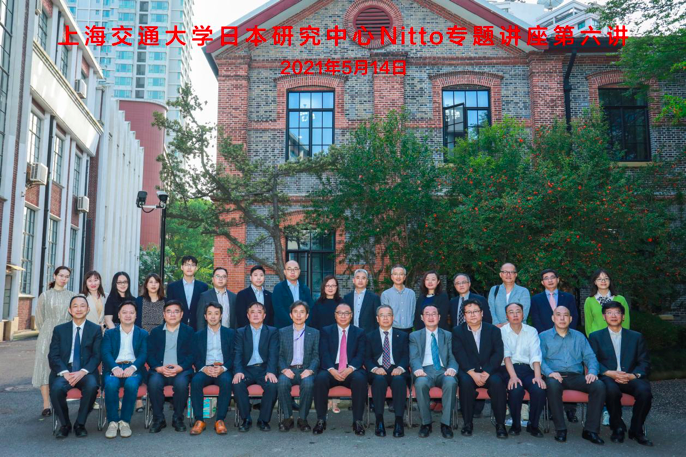
Group photo of all offline guests